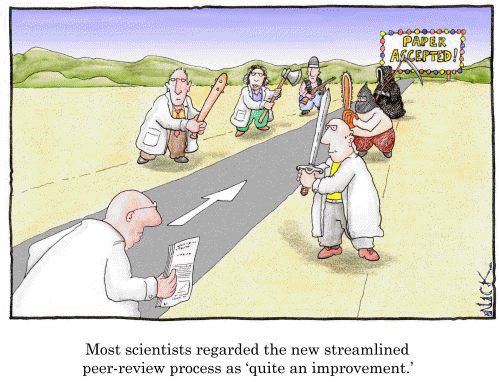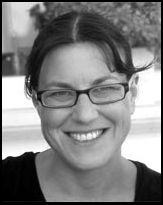NERC are seeking to award a number of part-time Knowledge Exchange Fellows (KE Fellows) and Policy Placement Fellows, whose objective will be to increase the impact of NERC-funded science through a programme of work of their own choosing.
The KE Fellowships are intended to enable the sharing and flow of knowledge and expertise between the NERC funded researchers and their user communities. The KE Fellows can be a focus for a school /department KE activity arising from NERC funded research. It is understood that in some cases a mix of funding will lead to an opportunity to generate impact but it is essential that NERC funding has played a key role.
Focus of the Fellowships
The applications should focus on accelerating and amplifying economic impact and improvements in the quality of life from NERC-funded research through working with business, NGOs or government bodies. This could include:
- strengthening existing partnerships
- developing new relationships
- researching new market opportunities
- providing case studies of knowledge exchange from NERC-funded research
- providing briefings and reports suitable for policymakers
Details of the two types of fellowship are:
1. Knowledge Exchange Fellowships (KE Fellowships)
- Up to four fellowships are available for those who submit a work plan of their own choosing to generate impact from NERC-funded research in their host institution.
- KE Fellowships will cover the KE Fellow’s salary including superannuation, NI and specific allowances, plus up to £40k for travel and other associated work plan costs.
- KE Fellowships are based in the institution where they are employed, and open to researchers at any stage of their career.
- KE Fellows can last for a minimum of one year to a maximum of three years. Candidates can apply to spend between 20% and 80% of their time on the fellowship.
- KE Fellows have to be employed by the host institution for the duration of their fellowship.
2. Policy Placement Fellowships
- Must be organised in collaboration with a policy-making body, for example a government department, devolved administration or agency. The placement is for a fixed term, for a specific project.
- Placement is jointly funded by NERC and the partner organisation on a 50:50 basis.
- Minimum length of placement will be six months and the maximum three years.
- Placement fellows will be expected to spend at least 50% of their fellowship in the partner organisation’s offices, although some work might require time to be spent at other locations in the UK or abroad.
Closing date for applications: 10 June 2013
Interview dates: 16-18 July 2013
For further information on how to apply please visit the NERC website
Alternatively, if you have any queries please contact keschemes@nerc.ac.uk,
or call Lynne Porter on 01793 411791.


 Mr Mayank Anand, a research student in BU’s School of Design, Engineering & Computing, recently attended the SET for Britain at the House of Commons in London. SET for Britain is an annual national research conference which is organized by The Parliamentary and Scientific Committee and aims at promoting early-stage and early-career research scientists, engineers and technologists of Britain.
Mr Mayank Anand, a research student in BU’s School of Design, Engineering & Computing, recently attended the SET for Britain at the House of Commons in London. SET for Britain is an annual national research conference which is organized by The Parliamentary and Scientific Committee and aims at promoting early-stage and early-career research scientists, engineers and technologists of Britain.









 For many staying out of harm’s way is a matter of locking doors and windows and avoiding dangerous places, people and situations; however for some vulnerable people it is not quite so easy. The threat of abuse is behind those closed doors, well hidden from public view and for those living in the midst of adult abuse violence and fear permeates many aspects of their lives, frequently perpetrated against them by those charged with providing their care.
For many staying out of harm’s way is a matter of locking doors and windows and avoiding dangerous places, people and situations; however for some vulnerable people it is not quite so easy. The threat of abuse is behind those closed doors, well hidden from public view and for those living in the midst of adult abuse violence and fear permeates many aspects of their lives, frequently perpetrated against them by those charged with providing their care.













 BU Professor has been invited to a series of plenary and invited lectures.
BU Professor has been invited to a series of plenary and invited lectures. Research reaching non-academic audiences
Research reaching non-academic audiences April’s Café Scientifique – Should we help machines understand and respond to our emotions?
April’s Café Scientifique – Should we help machines understand and respond to our emotions? Postgraduate Research Experience Survey (PRES) 2024 – 2 WEEKS LEFT
Postgraduate Research Experience Survey (PRES) 2024 – 2 WEEKS LEFT Working with The Conversation: online training session – Wednesday 8th May
Working with The Conversation: online training session – Wednesday 8th May Apply for up to £1,000 to deliver an event and take part in a national festival of public engagement with research
Apply for up to £1,000 to deliver an event and take part in a national festival of public engagement with research MSCA Postdoctoral Fellowships 2024
MSCA Postdoctoral Fellowships 2024 Horizon Europe News – December 2023
Horizon Europe News – December 2023